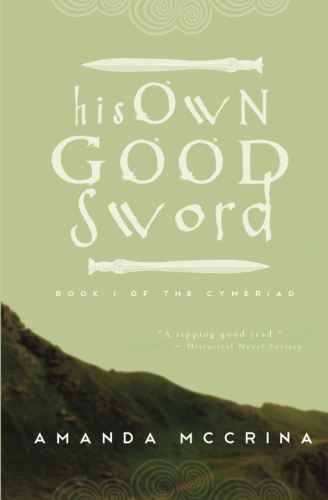I am—hopefully, finally—going to be graduating at the end of this year, and as graduation draws closer and closer I face the inevitable question more and more often: “So, what do you want to do afterward, career-wise?” Sometimes I manage to skirt around it; sometimes I throw out the safe old standby (“Oh, you know—teach”); very occasionally, when I decide to be honest, I admit that I’d like to write for a career—specifically, I’d like to write fiction.
Invariably this draws the same response: “What’s your major again?”
“History,” I say. “History major, political science minor.”
And, nearly as invariably, the follow-up question: “So why didn’t you major in English?”
It is, I suppose, a valid question. If I’m to spend the rest of my life writing novels, wrestling with plot structure and word choice, it makes sense I should have wanted the sort of foundation a major in English would give me. And of course I’ve always loved reading. I love nitpicking about grammar. I love etymology. (And in fact I did briefly consider English as a course of study when I first started looking at colleges.) But the simple truth of it is that I don’t enjoy English classes; I’ve never enjoyed English classes. History is truly where my academic passion lies.
The assumption that because I want to write for a living I should have majored in English is, I think, a troublesome one, and indicative of a wider problem. The ability to write, and to write well, shouldn’t be limited to one particular academic discipline; it should be an integral part of every discipline. The idea that good grammar and solid syntax (ha—alliteration!) should only matter to English majors has grave implications for every field of study, including (perhaps especially) history. English majors aren’t the only ones who need to communicate clearly.
I want to write historical fiction, so majoring in history has benefited my writing in countless ways. Majoring in English, on the other hand, may not have given me the necessary tools to engage history and incorporate it effectively into my writing. (I’m not saying one must major in history to write historical fiction, of course, but it’s certainly helped me, personally.) But a solid foundation in writing is vital to any discipline or field of study, not just English.

 I'm a student, amateur historian, coffee connoisseur, movie buff, hockey fan, cat lady, and all-around nerd. I'm currently pursuing a degree in history and political science at the University of West Georgia. In my spare time, I write historical fiction and fantasy. My debut YA historical fantasy novel His Own Good Sword was released on 7 May 2013.
I'm a student, amateur historian, coffee connoisseur, movie buff, hockey fan, cat lady, and all-around nerd. I'm currently pursuing a degree in history and political science at the University of West Georgia. In my spare time, I write historical fiction and fantasy. My debut YA historical fantasy novel His Own Good Sword was released on 7 May 2013.


